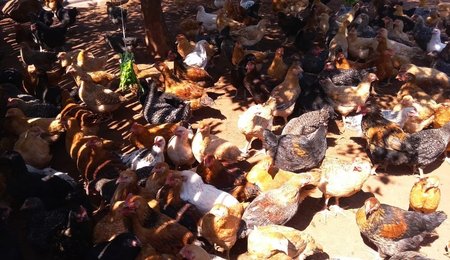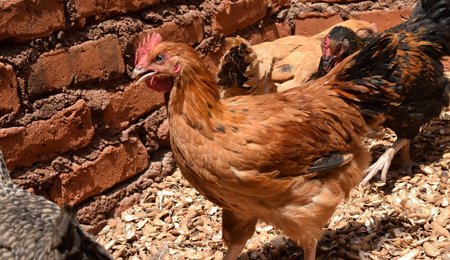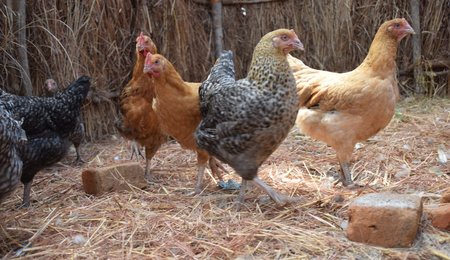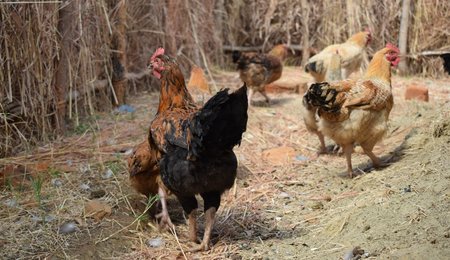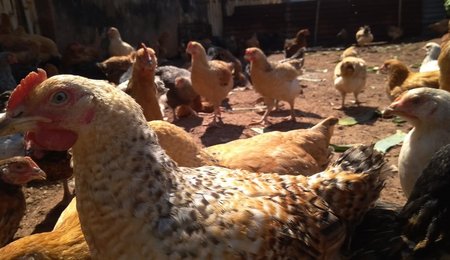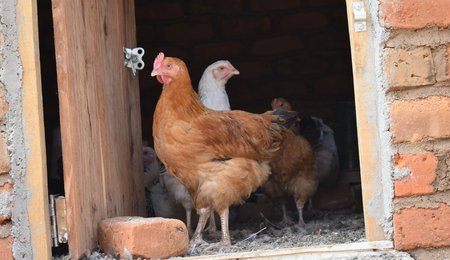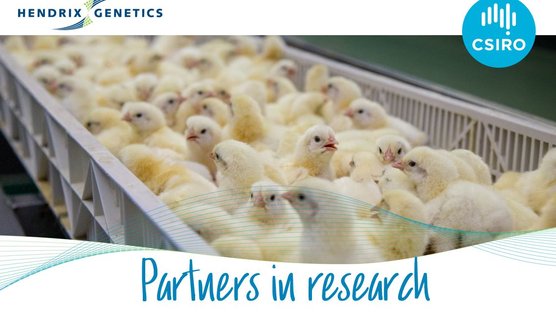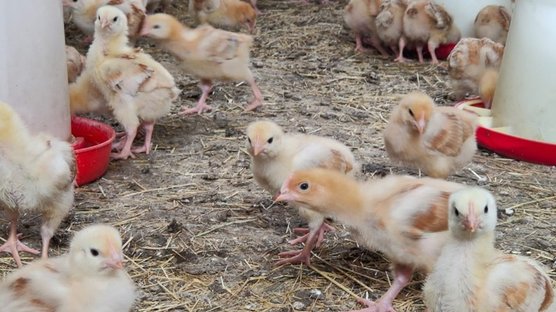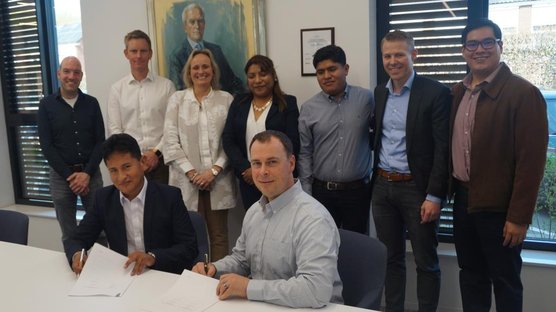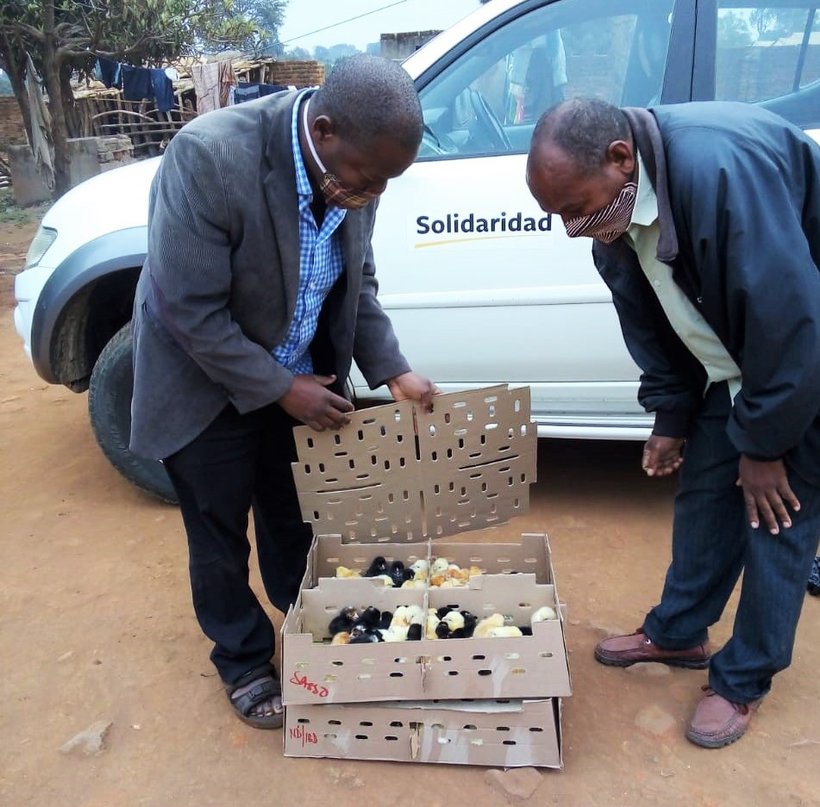
Published on Oct. 9, 2020
A new partnership sees sustainable poultry introduced to smallholder farmers in Mozambique and Zambia
Hendrix Genetics and Solidaridad have partnered to provide sustainable poultry production in Mozambique and Zambia, Africa. Combining dual-purpose birds from the SASSO breed, Hendrix Genetics and the farming network infrastructure of Solidaridad, local African poultry smallholder farmers will have access to secure income and improved food security.
A growing protein market
Africa’s animal protein market is expected to increase significantly in the coming years. Poultry and eggs are an important sources of protein and can contribute towards a sustainable future. Being dual-purpose, meaning they can be used for meat and eggs, with ‘backyard’ potential, they provide some of the most inexpensive animal proteins that can be produced domestically. With this project, a positive impact can be made on the lives of local farmers and their families. Through SASSO, Hendrix Genetics’ traditional poultry genetic brand, poultry farmers in Mozambique and Zambia will be connected with robust and well performing dual-purpose birds tailored for the individual needs of the market.
Challenges remain with poultry feed, gender barriers, and access to inputs
The demand for affordable and dependable poultry feed remains a challenge in the region as the distribution of feed is centralized around the big cities. On all three of the projects sites, farmers are having to travel over 500km in order to access poultry feed, making the travel costs unbearable. Solidaridad, as the project’s implementing partner, develops sustainable production practices that provide profitable markets for smallholder soy farmers. This project will make use of soy crops as a source of poultry feed, reducing waste, and producing more with fewer resources. This has the potential to transform the Southern African soy sector and could help increase sustainability in the region.
It also has the potential to make an important impact on the lives of women in the region. According to the FAO, more than 70 percent of small-scale chicken farming in Africa is owned and operated by women; this is due to the fact that livestock in most rural communities is considered to be a male currency. In the scenario in which women do own cattle, they would have to have a male relative to front their livestock upkeep and trade. This leaves small stock (e.g. chicken, goats, sheep) as a socially acceptable alternative for women to farm and trade in. Creating greater value within poultry farming could have a significant impact on the opportunities for women in rural African communities and thus household income.
Due to the low resource base of rural communities around food, water and access to vaccines, local poultry breeds tend to perform poorly, especially around dry seasons. This limits progress and expansion for poultry farmers in the region and prevents small farmers from diversifying their sources of food and income.
Introducing new poultry breeds for better outcomes
Part of the Sustainable Access to Poultry Parental Stock to Africa (SAPPSA) project is to supply improved breeds to local poultry value chains. Day-old chicks are first kept in Mother Units at a local farm in groups of around 500 chicks. They are raised with access to quality poultry feed, water, vaccines and good management. After the brooding period (4-6 weeks), the teen chicks are sold in small quantities to rural smallholder farmers.
This approach of using so-called Mother Units or Brooder Units, reduces the mortality rate of chickens drastically (around 5% compared to more than 40%). With a strong start, these teen chicks will then have an increased rate of productivity. This means that hens can lay more than 180 eggs per year, while roosters will reach the weight of around 2.0 kgs within 3 months under the care of smallholder farmers.
‘Influencer’ farmers demonstrate the potential of the chicks
The first phase of the project was to familiarize communities with these ‘new’ chickens and the way of working. After the brooding period, the 200 teen chicks were distributed in Zambia (Katete) and Mozambique (Angonia and Gurue) to ‘influencers’ who are farmers in their own right or work in the agriculture space. They have the social capital and the mobilizing power necessary to showcase the potential of these chickens to the community at large.
Mr. & Mrs. Chillala, who started their poultry business in 2017, form part of the influencers and they attest to the fact that the first 3 weeks tend to be a challenge with the local breed as their mortality rate is high. The market demand for good quality chickens remains high in the rural communities, so if farmers can be trained in disease management, they will be in a better position to thrive.
The stage is set for greater impact
With the first SASSO chicks born and thriving in Mozambique and Zambia, we are breaking barriers by providing something new in the region. This partnership between Hendrix Genetics and Solidaridad will connect local farmers with a network set for success. By introducing SASSO dual-purpose birds, smallholder farmers can make their businesses more profitable and productive. Ultimately, the project sets itself out to intervene at local value chains within the poultry sector and addresses challenges that directly impact smallholder farmers. The project will upskill the smallholder’s poultry management capacity around animal health (access to vaccines), water, and nutrition. While the SASSO birds are king scavengers, the key intervention to the project is to maximize on locally produced soy crop to create sunflower cake as nutrition for the chickens as well, making access to vaccination centralized through the mother units.
The next phase will have 10 Mother Units with 500 chicks in each region. Similar to the market exploration phase, the teen chicks will be sold to interested rural smallholder farmers after the brooding period to thrive at their farms.
Hendrix Genetics, headquartered in the Netherlands, is a leading multi-species breeding company with primary activities in turkeys, layers, traditional poultry, swine, and aquaculture breeding. Backed by a strong portfolio of leading brands, Hendrix Genetics provides expertise and resources to producers in more than 100 countries, with operations and joint ventures in 25 countries and over 3,400 employees worldwide.
SAPPSA (Sustainable Access to Poultry Parental Stock to Africa): A 5-year project granted by the Bill & Melinda Gates Foundation to Hendrix Genetics. Access to poultry parent stock of improved dual-purpose breeds, such as breeds from SASSO, is sometimes limited for smallholder farmers in Africa. The parent stock is imported from outside Africa and this supply system can be disrupted by outbreaks of diseases such as avian influenza. The imported dual-purpose breeds perform better than local ecotypes. The project aims to improve access to those improved breeds for smallholder farmers in Sub-Saharan Africa. Dual-purpose breeds are key for smallholder farmers to reduce poverty with production of both eggs and chicken meat that provides nutritious protein to the growing African population.
For more information, please contact:
Naomi Duijvesteijn
Project Manager SAPPSA, R&D
Hendrix Genetics
Villa “de Körver”
P.O. Box 114, 5830 AC Boxmeer, The Netherlands
T: + 31 485 802 167
E: naomi.duijvesteijn@hendrix-genetics.com
Gert van der Bijl
International Programme Manager Livestock & Leather
Solidaridad Europe
Goylaan 15, 3525 AA Utrecht, The Netherlands
T: 030 2720313
E: gert.vanderbijl@solidaridadnetwork.org
